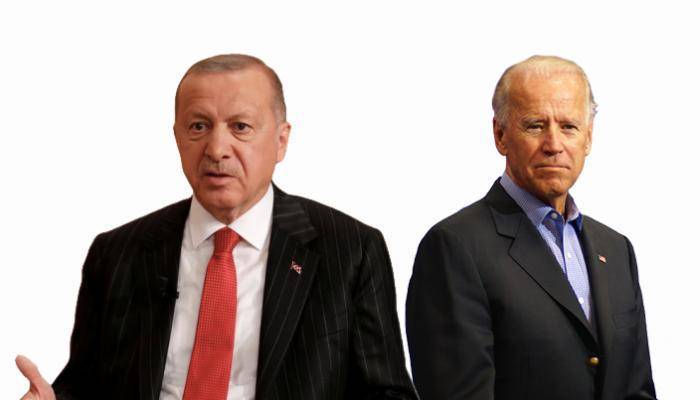The White House announced on Friday that U.S. President Joe Biden had a phone call with Turkish President Recep Tayyip Erdoğan, coinciding with reports of his readiness to recognize the "genocide" of Armenians. The White House statement did not address the controversial issue during the first direct communication between the leaders of the NATO member states, whose relations have severely deteriorated.
The White House stated: "President Biden spoke today with President Erdoğan, conveying his desire for a constructive bilateral relationship with broader areas of cooperation and effective management of differences." The statement added that the two leaders agreed to meet on the sidelines of the NATO summit in June to discuss the relations between their countries in greater depth.
Similarly, the Turkish presidency stated, "The leaders agreed on the strategic nature of the bilateral relationship and the importance of working together to establish broader cooperation on issues of common interest," without mentioning Biden's expected announcement on Saturday, which would coincide with the anniversary commemorating the victims.
Furthermore, the statement noted that Erdoğan affirmed to Biden that "addressing issues such as the presence of the Gulenist organization in the United States and U.S. support for the PKK and PYD in Syria is essential to strengthen Turkish-American relations."
**Direct Notification**
However, Reuters reported from informed sources that President Biden informed Erdoğan during the call of his intention to recognize that "the massacres and forced displacement suffered by Armenians in 1915 constitute genocide." There are several disputes between Ankara and Washington contributing to increased tension in their bilateral relations, including Turkey's purchase of the Russian S-400 air defense system, U.S. support for Kurdish armed groups in northern Syria, and the refusal to extradite Fethullah Gülen, accused of orchestrating the 2016 coup attempt.
**Anticipated Announcement**
Later, the U.S. State Department indicated an expected "announcement" on Saturday regarding the "Armenian genocide," seemingly confirming the President's intention to acknowledge it. U.S. Deputy State Department spokesperson Jalina Porter, in response to a question about the Armenian genocide, stated: "Regarding the Armenian genocide, you can anticipate an announcement tomorrow, and I refer you to the White House (on this matter)."
Washington has thus far avoided discussing the genocide issue. This marks the first time a U.S. official has used the term "Armenian genocide" in conversation. Despite decades of pressure from the Armenian community in the United States, successive U.S. presidents have avoided addressing the matter for fear of creating a rift with Turkey, a NATO ally.
**Expected Tension**
Turkish Foreign Minister Mevlüt Çavuşoğlu warned in an interview that Biden's move would strain bilateral relations, stating, "If the United States wants to cause the deterioration of relations, the decision is theirs." Meanwhile, the head of the Armenian Churches in Turkey, Bedros Shirinoglu, stated in an interview with Turkey's official Anadolu news agency that "the U.S. and the EU are far from good faith when addressing the events of 1915 and interfere in the issue for political motives."
Shirinoglu emphasized his disagreement with the political authorities exploiting certain events between the Turkish and Armenian peoples, warning against the intervention of parties not involved in the events, as it is in the hands of the two peoples, according to him. He added: "Playing with the dignity of the Turkish people or taking an antagonistic position towards Turkey should not be a precondition for sympathizing with the Armenians regarding the events of 1915."
The Wall Street Journal reported that U.S. officials indicated that President Biden is prepared to officially announce in a statement on the anniversary of the Armenian massacres that occurred on Saturday that the massacres against Armenians in the early twentieth century represent "genocide."
**International Acknowledgments**
Turkey denies that the killings of Armenians during that era constitute "genocide," insisting on describing them as a tragedy for both sides, while over twenty countries and many historians acknowledge it as genocide. Turkey stresses that the killings and deportations of Armenians in what was then the Ottoman Empire were not genocide but rather the result of a broader conflict during World War I. However, Turkish pressure has not prevented some major countries, such as France and Germany, from recognizing the genocide, while many others have refrained from official recognition.




